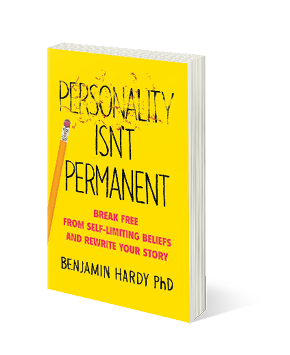
1. PERSONALITY ISN’T PERMANENT
Break Free From Self-Limiting Beliefs and Rewrite Your Story
By Benjamin Hardy, Ph.D.
If you’re someone who has tried to make a life change, but had a hard time doing so, entrepreneur and organizational psychologist Benjamin Hardy, Ph.D. says his book is for you. Not only does Hardy believe that personality doesn’t matter, but also that it’s not the most important aspect that defines you.
One of those keys Hardy cites to shift your mindset and make big life changes is to create a “forcing function,” which pushes you to do a desired action. This can be something like paying for a workout class ahead of time.
“You’re creating a situation that suits your future self, forcing you to show up as that person here and now,” he writes. Hardy’s tips are rooted in psychology. If you’re willing to give it a try, the advice in his book can set you up with opportunities to become a better you. (June; Portfolio; $27)
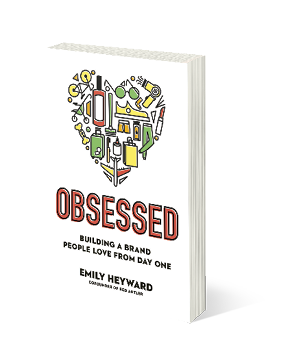
2. OBSESSED
Building a Brand People Love From Day One
By Emily Heyward
Creating the next hot product isn’t hard. The hard part is making it stick, writes Emily Heyward, co-founder and CEO of Red Antler, a full-service branding company.
“Gatekeepers no longer exist,” Heyward writes. “You don’t need to be able to afford a TV ad or get a place on the shelf at a major retail chain in order to get in front of people.”
So how do you make it stick? You build a brand people can relate to. In Obsessed, Heyward breaks down the keys to establishing and maintaining a brand people will latch onto, such as creating feelings of inclusion and establishing values.
She not only explains why these tools work, but provides real life examples of how they’ve worked for other companies. (June; Portfolio; $27)
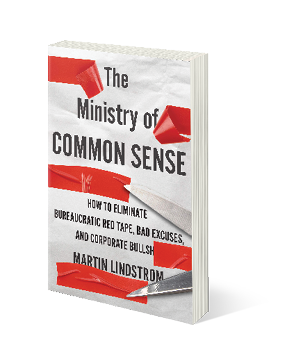
3. THE MINISTRY OF COMMON SENSE
How to Eliminate Bureaucratic Red Tape, Bad Excuses, and Corporate BS
By Martin Lindstrom
How many meetings have you attended that could have been an email? Or how many times have you been locked out of your computer, and had to wait for someone from your IT department to come fix it only after you put in a ticket? According to Martin Lindstrom, a management consultant, these problems are global.
“Companies are so entangled in their own internally generated issues, and further beset by reams of invisible red tape inside employees’ heads, that they lose sight of their core purpose,” Lindstrom writes.
His key message? Companies should implement their own Ministry of Common Sense, a governing body that can “vacuum up the lack of common sense in [a] company and replace it with simple, intuitive solutions that eliminate confusion and impracticality from the lives of both employees and customers.” (June; Houghton Mifflin Harcourt; $28)
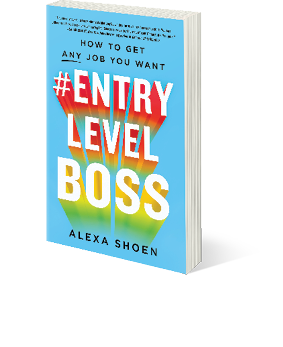
4. #ENTRYLEVELBOSS
How to Get Any Job You Want
By Alexa Shoen
Navigating the job market isn’t easy, especially in this economy. But sometimes we make it harder on ourselves than it needs to be.
In #EntryLevelBoss, Alexa Shoen offers nine steps to work your way through the job hunt and the job you want. She starts by dispelling some incorrect beliefs about how employment works, then takes readers through every step of the job search process including: creating a list, résumés, cover letters, and interview etiquette. Shoen relies on her own experiences (she formerly worked at Facebook before launching her own company), but also provides interesting anecdotes and ideas based on research.
The book is geared toward a younger audience, but her straightforward insight, delivered in a candid and approachable manner, can be useful for anyone trying to navigate their way through the job market. Her advice and approach is solid, but it’s up to readers to put it to the test. (May; St. Martin’s Griffin; $18)
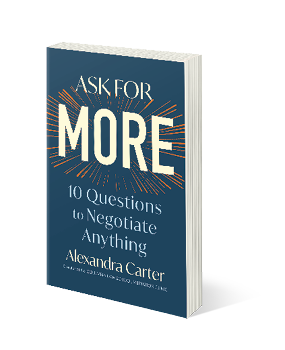
5. ASK FOR MORE
10 Questions to Negotiate Anything
By Alexandra Carter
“Too often, we are taught that negotiation means talking instead of asking,” writes negotiation expert and law professor Alexandra Carter. “Making your arguments. Controlling the conversation. That negotiation means having all the answers and getting your way to prevent the other person from getting their way.”
Carter backs up her approach with plenty of research and examples. She’s taught hundreds of diplomats as a negotiation trainer for the United Nations.
Ask for More is for someone who wants to ask for a raise, but doesn’t know where to start, Carter writes. It’s for entrepreneurs who need to grow their businesses. And it can also be useful for working through conflicts in relationships. Whether it’s business or life, Carter’s approach works. (May; Simon & Schuster; $27)
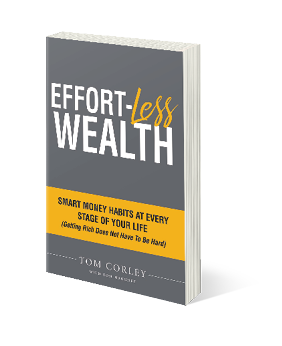
6. EFFORT-LESS WEALTH
Smart Money Habits At Every Stage of Your Life
By Tom Corley
In his latest book, Tom Corley (Rich Habits) tells the reader about Tom O’Neill and John Veblen. Their lives play out similarly, but differ financially. When the two found someone to propose to, for example, O’Neill spent $1,000 on an engagement ring. Veblen spent $5,960. For their weddings, O’Neill spent $2,625 and Veblen spent $12,000.
Throughout their lives, readers see how O’Neill and Veblen handle finances differently. Veblen ends up spending over $300,000 more than O’Neill.
Corley then breaks down their money principles, wise and unwise. He goes deep into how the decisions we make—big and small—affect our lives financially. “Your habits are your values in motion,” Corley writes. “Define what is truly most important to you. Don’t put any value on possessions. Possessions will not make you happy. Financial freedom will make you happy.” (April; MCP Books; $18)
Read next: 27 Books for Success to Add to Your Summer Reading List
This article originally appeared in the July/August 2020 issue of SUCCESS magazine.
Photo by Nataliia Yankovets
[fl_builder_insert_layout slug=”amazon-affiliate-disclaimer”]










